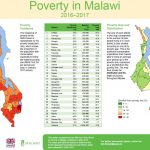Dennis Ochieng conducted an enumerator training in June 2019 in Malawi. The training covered various topics such as conducting qualitative and quantitative farm household and firm surveys, research methodology and ethics, enumeration techniques, data collection using tablets and conducting discrete choice experiments. The training had a total of (5 males, 3 females). As a result […]
Working Paper 28: Nutrient and mycotoxin content of commercially-sold premixed infant cereals in Malawi
Working Paper 28 explores the quality of premixed cereals sold for infant feeding in Malawi in a multifaceted way, assessing nutrient adequacy, mycotoxin contamination, and labeling accuracy. Fortified premixed cereals can help caregivers meet infants’ nutrient needs, when used to complement continued breastfeeding alongside the gradual introduction of nutrient-dense family foods. While these cereals are […]
Training Of Enumerators For A Household Survey In Malawi
Catherine Ragasa (Senior Research Fellow, IFPRI) led a training for enumerators for a household survey on pluralistic extension system in Malawi in 2018, in collaboration with Wadonda Consult. The training had 13 female and 12 male participants. The training material included questionnaires, ethical review and training manuals from Wadonda Consult.
Poster on Poverty in Malawi, 2016–2017
IFPRI Malawi is pleased to announce the publication of a Poster on Poverty in Malawi, 2016–2017, which complements our fifth Key Facts Sheet on poverty. The poster was developed to illustrate the incidence, gap and distribution of poverty throughout Malawi.
The relationship between forest cover and diet quality: a case study of rural southern Malawi
The importance of forests in supporting the well-being of poor rural communities in developing countries cannot be overstated, not only for improving food security but also for biodiversity conservation. A study recently published in Food Security journal examined whether there is a relationship between forest cover and diet quality at the household level in rural […]
- « Previous Page
- 1
- …
- 47
- 48
- 49
- 50
- 51
- …
- 69
- Next Page »



